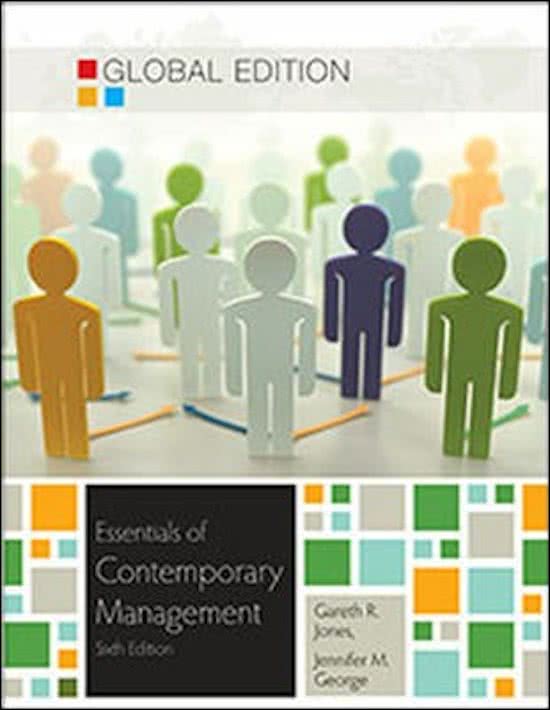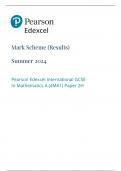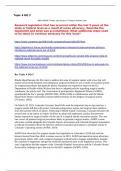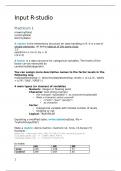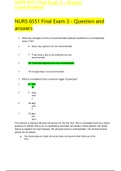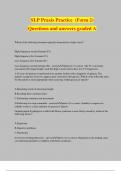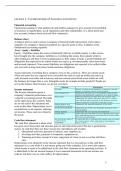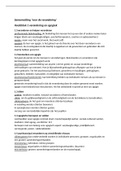The Nature of Managerial Decision Making
Decision making: The process by which managers respond to opportunities and threats by analyzing options
and making determinations about specific organizational goals and courses of action.
Decision making in response to opportunities occurs when managers search for ways to improve
organizational performance to benefit customers, employees, and other stakeholder groups.
Decision making in response to threats occurs when events inside or outside the organization are adversely
affecting organizational performance and managers are searching for ways to increase performance.
Programmed and Nonprogrammed Decision Making:
Programmed decision making: Routine, virtually automatic decision making that follows established rules or
guidelines. Decisions that have been made so many times in the past that managers have developed rules or
guidelines to be applied when certain situations inevitably occur. Most decision-making that relates to the day-
to-day running of an organization is programmed decision making.
Nonprogrammed decision making: Nonroutine decision making that occurs in response to unusual,
unpredictable opportunities and threats. Nonprogrammed decision-making is required for nonroutine
decisions. In the absence of decision rules, managers may rely on their intuition or their reasoned judgment.
The likelihood of error is much greater in nonprogrammed decision making than in programmed decision
making.
Intuition: Feelings, beliefs, and hunches that come readily to mind, require little effort and information
gathering, and result in on-the-spot decisions.
Reasoned judgment: A decision that requires time and effort and results from careful information gathering,
generation of alternatives, and evaluation of alternatives.
The Classical Model
Classical decision making model: One of the earliest models of decision-making, a prescriptive approach,
which means it specifies how decisions should be made. Managers using the classical model make a series of
simplifying assumptions about the nature of the decision-making process. The premise of the classical model is
that once managers recognize the need to make a decision, they should be able to generate a complete list of
all alternatives and consequences and make the best choice. In other words, the classical model assumes
mangers have access to all the information they need to make the optimum decision. Furthermore, the
classical model assumes managers can easily list their own preferences for each alternative and rank them
from least to most preferred to make the optimum decision.
Optimum decision: The most appropriate decision in light of what managers believe to be the most desirable
consequences for the organization.


